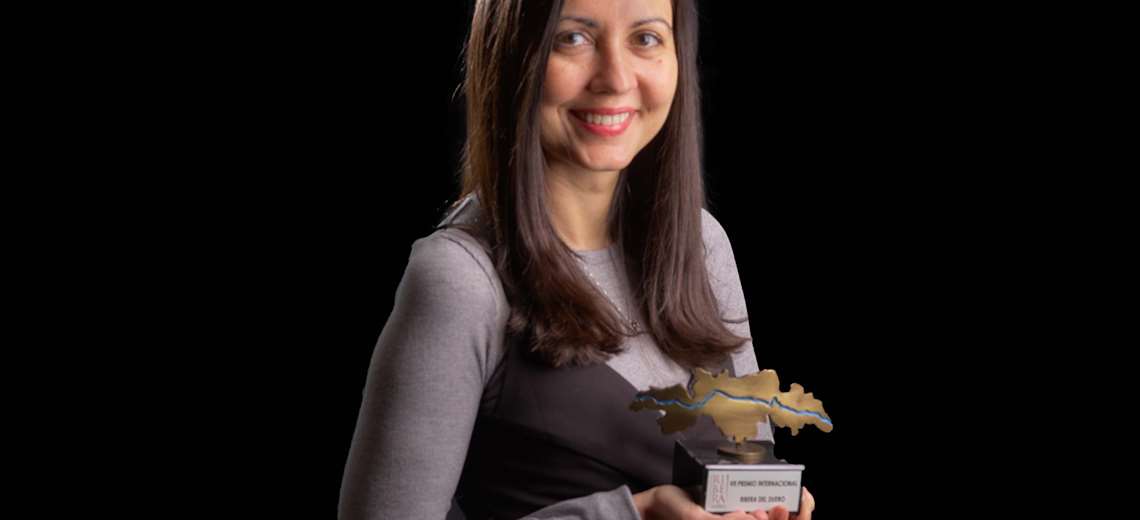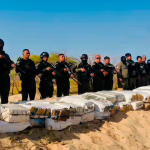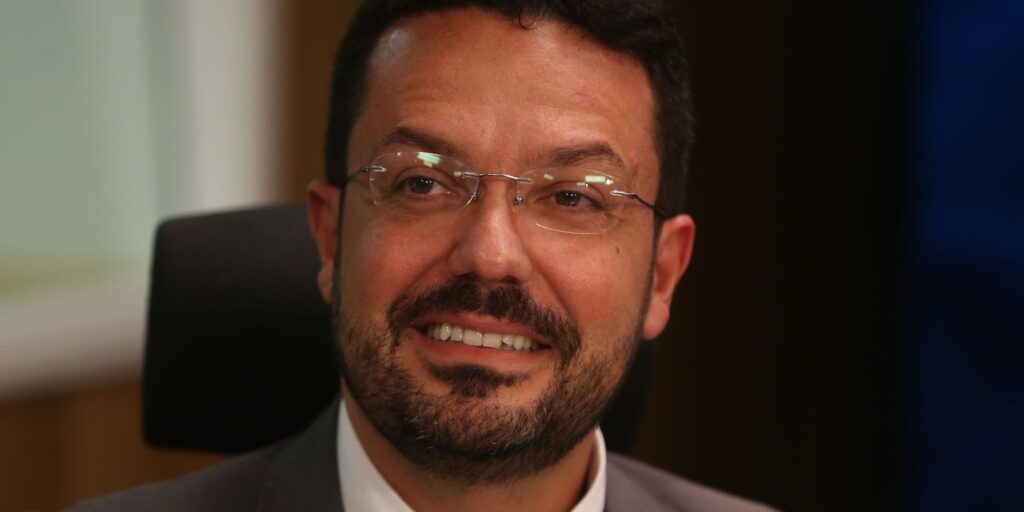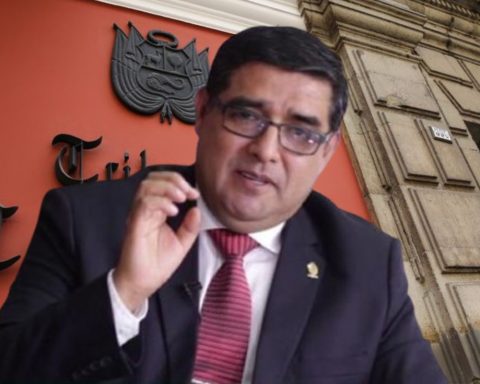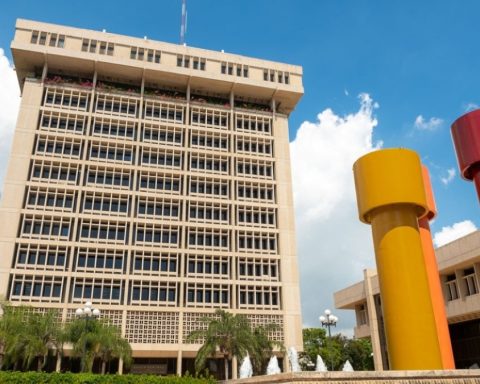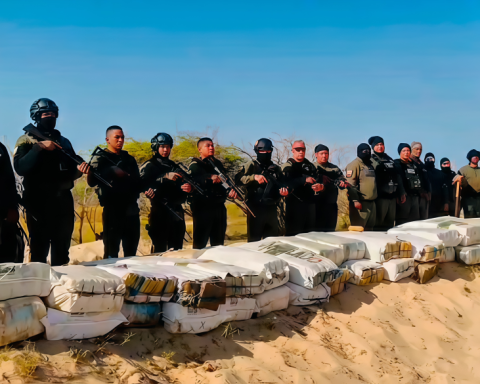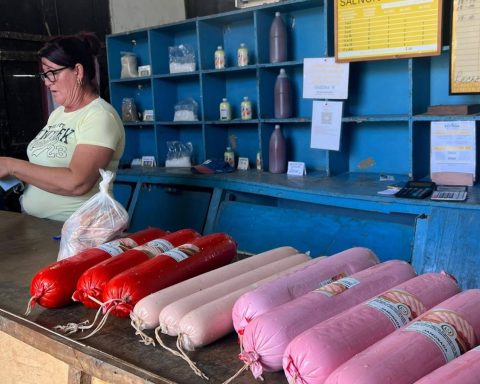The remains of a nuclear accident, a journey through the Bolivian Amazon devastated by rubber extraction, a cave in Oaxaca (Mexico), which reflects the immensity of time over life.
All these nuances are provided in the stories of You glow in the dark, Bolivian book Liliana Colanzi with which she was the winner of the VII Ribera del Duero Award of stories, endowed with 25,000 euros (approximately 27,000 dollars).
It is a work “of great originality and expressive power that builds strange worlds by combining the keys of science fiction and realism to carry out a critique that places us before the despair and restlessness of life”, according to Rosa Montero, Marta Sanz and Cristian Crusatthe jury of this award summoned by the Spanish publisher Pages of Foam.
It is one of the most prestigious literary awards in Spanish letters, which was previously obtained by consecrated namesyes, like Guadalupe Nettel, Samanta Schweblin and Marcos Giralt Torrente.
On this occasion, you glow in the dark was among the five finalistss together with A crack in the night, by Laura Baeza, Pombero, by Marina Closs, A flaming meteorite, by Pedro Juan Gutiérrez and Everything we learned from the movies, by María José Navia.
suffer and stay
You glow in the dark is made up of six stories united around the author’s interest in approaching time from different aspects, for example. “There is a story set in a cave throughout the centuries, because I was interested in understanding time on a human scale. Human beings have very short lives, but the time of the planet is enormous, extensive and fascinating. Then, “Science fiction allows me to project myself as a writer and imagine what the planet would be like in the future”, mentions Colanzi.
On the other hand, there is a story set in a colony that maintains traditions and rejects progress and any external influence, especially that which has to do with technological advances.
There are two stories they refer to the consequences of radioactive waste in which Colanzi leaves his concern on the subject markedespecially in the radiological accident in Goiania (Brazil), in 1987, in which two scrap metal collectors entered an abandoned hospital, dismantled medical equipment to treat cancer and sold this scrap, inadvertently causing contamination with cesium, an alkaline material that It had terrible consequences for the population.
“I started writing these stories in 2017, I had some ready, but with the pandemic I read them again and rewrote them almost completely. They are all located in Latin America and although in some cases I do not name specific places, they are quite recognizable, such as the Bolivian Amazon or Oaxaca (Mexico). My imagination has been haunting these places in Latin America, especially Bolivia. The landscape for me is more than a background to put a character, the landscape is an active element that has a history, often forgotten, that I am interested in reactivating”, explains the author.
Colanzi defends the ability of the short story as a genre to create worlds with complex stories in a few pages. “The story It takes me to places with no exit. ANDIt’s like those miniatures from which many elements emerge, sometimes contradictory, but they create a whole. The brief form is a space in which you can bring dissimilar elements together and make them dialogue”, he assures.
Clarify that not all the stories in the book are speculative (science fiction horror or fantastic), but there is also the question of the strange and the dreamlike, as elements that distort reality.
Looking back over the past 12 years, from Permanent Vacation (2010) and Our Dead World (2016) to You Glow in the Dark, Colanzi admits that there are issues that are repeated in his workeven though the narrative modes he uses today are different.
“Our dead world was written from a realist vein, while a lot of the stories I write now explore science fiction, horror, and the fantastic. However, I see that there are things that were present in Permanent Holidays that continue to appeal to me to this day. My first book was stories of lost youngsters and many of the characters in my current stories are also teenagers. I am very interested in this stage of life that is so intense and full of discoveries”, he concludes.
La Cruceña, yesterday in Madrid, attending the media at the facilities of the publishing house Páginas de Espuma
The remains of a nuclear accident, a journey through the Bolivian Amazon devastated by rubber extraction, a cave in Oaxaca (Mexico), which reflects the immensity of time over life.
All these nuances are provided in the stories of You glow in the dark, Bolivian book Liliana Colanzi with which she was the winner of the VII Ribera del Duero Award of stories, endowed with 25,000 euros (approximately 27,000 dollars).
It is a work “of great originality and expressive power that builds strange worlds by combining the keys of science fiction and realism to carry out a critique that places us before the despair and restlessness of life”, according to Rosa Montero, Marta Sanz and Cristian Crusatthe jury of this award summoned by the Spanish publisher Pages of Foam.
It is one of the most prestigious literary awards in Spanish letters, which was previously obtained by consecrated namesyes, like Guadalupe Nettel, Samanta Schweblin and Marcos Giralt Torrente.
On this occasion, you glow in the dark was among the five finalistss together with A crack in the night, by Laura Baeza, Pombero, by Marina Closs, A flaming meteorite, by Pedro Juan Gutiérrez and Everything we learned from the movies, by María José Navia.
suffer and stay
You glow in the dark is made up of six stories united around the author’s interest in approaching time from different aspects, for example. “There is a story set in a cave throughout the centuries, because I was interested in understanding time on a human scale. Human beings have very short lives, but the time of the planet is enormous, extensive and fascinating. Then, “Science fiction allows me to project myself as a writer and imagine what the planet would be like in the future”, mentions Colanzi.
On the other hand, there is a story set in a colony that maintains traditions and rejects progress and any external influence, especially that which has to do with technological advances.
There are two stories they refer to the consequences of radioactive waste in which Colanzi leaves his concern on the subject markedespecially in the radiological accident in Goiania (Brazil), in 1987, in which two scrap metal collectors entered an abandoned hospital, dismantled medical equipment to treat cancer and sold this scrap, inadvertently causing contamination with cesium, an alkaline material that It had terrible consequences for the population.
“I started writing these stories in 2017, I had some ready, but with the pandemic I read them again and rewrote them almost completely. They are all located in Latin America and although in some cases I do not name specific places, they are quite recognizable, such as the Bolivian Amazon or Oaxaca (Mexico). My imagination has been haunting these places in Latin America, especially Bolivia. The landscape for me is more than a background to put a character, the landscape is an active element that has a history, often forgotten, that I am interested in reactivating”, explains the author.
Colanzi defends the ability of the short story as a genre to create worlds with complex stories in a few pages. “The story It takes me to places with no exit. ANDIt’s like those miniatures from which many elements emerge, sometimes contradictory, but they create a whole. The brief form is a space in which you can bring dissimilar elements together and make them dialogue”, he assures.
Clarify that not all the stories in the book are speculative (science fiction horror or fantastic), but there is also the question of the strange and the dreamlike, as elements that distort reality.
Looking back over the past 12 years, from Permanent Vacation (2010) and Our Dead World (2016) to You Glow in the Dark, Colanzi admits that there are issues that are repeated in his workeven though the narrative modes he uses today are different.
“Our dead world was written from a realist vein, while a lot of the stories I write now explore science fiction, horror, and the fantastic. However, I see that there are things that were present in Permanent Holidays that continue to appeal to me to this day. My first book was stories of lost youngsters and many of the characters in my current stories are also teenagers. I am very interested in this stage of life that is so intense and full of discoveries”, he concludes.

La Cruceña, yesterday in Madrid, attending the media at the facilities of the publishing house Páginas de Espuma
;
